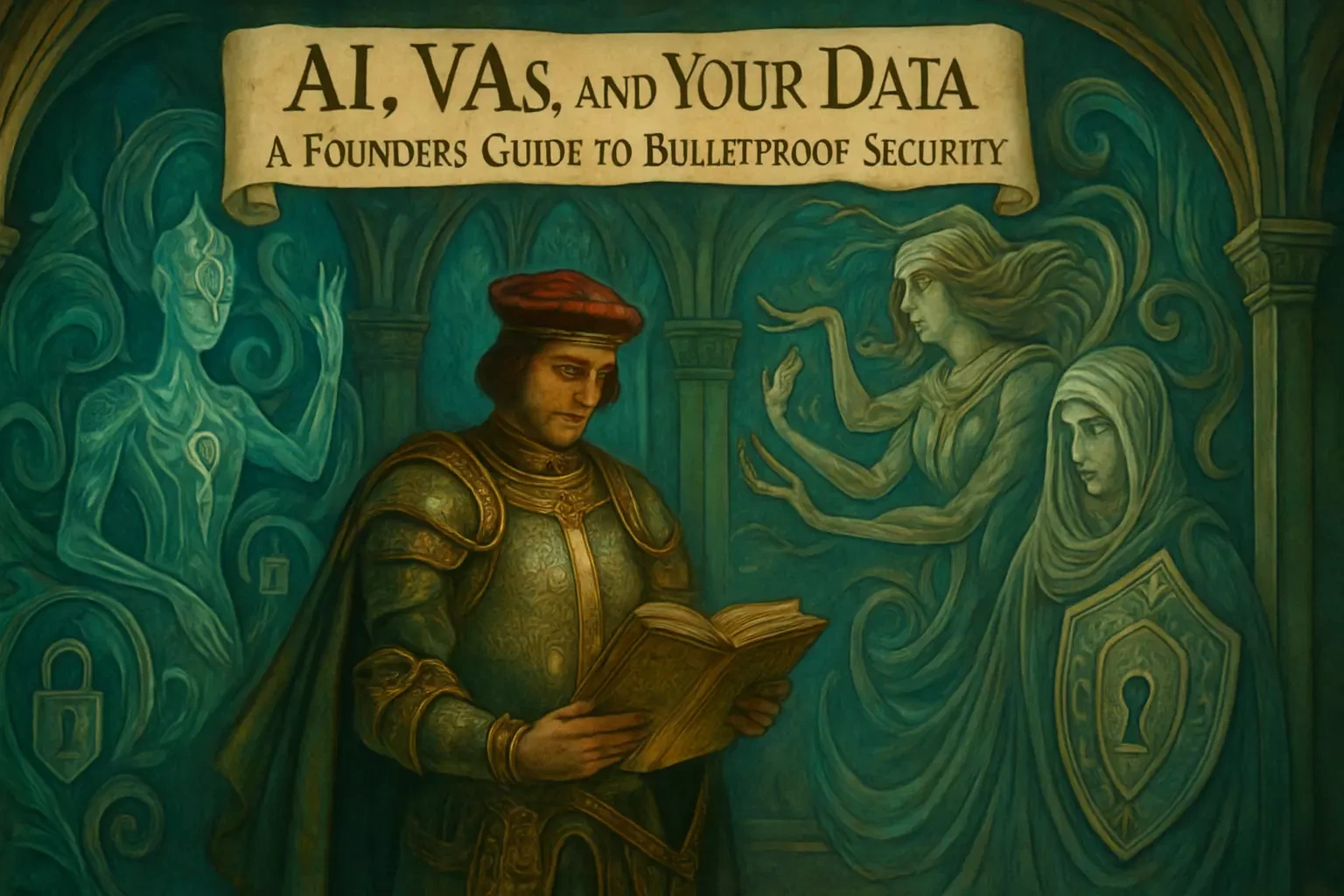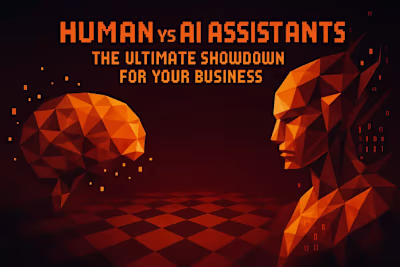AI, VAs, and Your Data: A Founder's Guide to Bulletproof Security

AI, VAs, and Your Data: A Founder's Guide to Bulletproof Security
Why Data Security is Paramount with VAs and AI
Key Security Risks of Third-Party AI Tools
Data Privacy Policies and Training Data
Vulnerabilities in the AI Supply Chain
Insecure API Integrations
A Practical Security Checklist for Working with Your VA
Use a Secure Password Manager
Implement the Principle of Least Privilege (PoLP)
Sign a Comprehensive Non-Disclosure Agreement (NDA)
Vet Your VA and Their Security Practices
How to Choose Secure AI Tools
Look for Security Certifications
Scrutinize Data Handling Policies
Enforce Two-Factor Authentication (2FA)
Conclusion
References
AI, VAs, and Your Data: A Founder's Guide to Bulletproof Security
Why Data Security is Paramount with VAs and AI
Key Security Risks of Third-Party AI Tools
Data Privacy Policies and Training Data
Vulnerabilities in the AI Supply Chain
Insecure API Integrations
A Practical Security Checklist for Working with Your VA
Use a Secure Password Manager
Implement the Principle of Least Privilege (PoLP)
Sign a Comprehensive Non-Disclosure Agreement (NDA)
Vet Your VA and Their Security Practices
How to Choose Secure AI Tools
Look for Security Certifications
Scrutinize Data Handling Policies
Enforce Two-Factor Authentication (2FA)
Conclusion
References
Posted Jun 30, 2025
Using an AI-powered VA? Don't overlook data security. Our guide covers the essential steps to protect your sensitive information and ensure a secure, trustworthy partnership.









